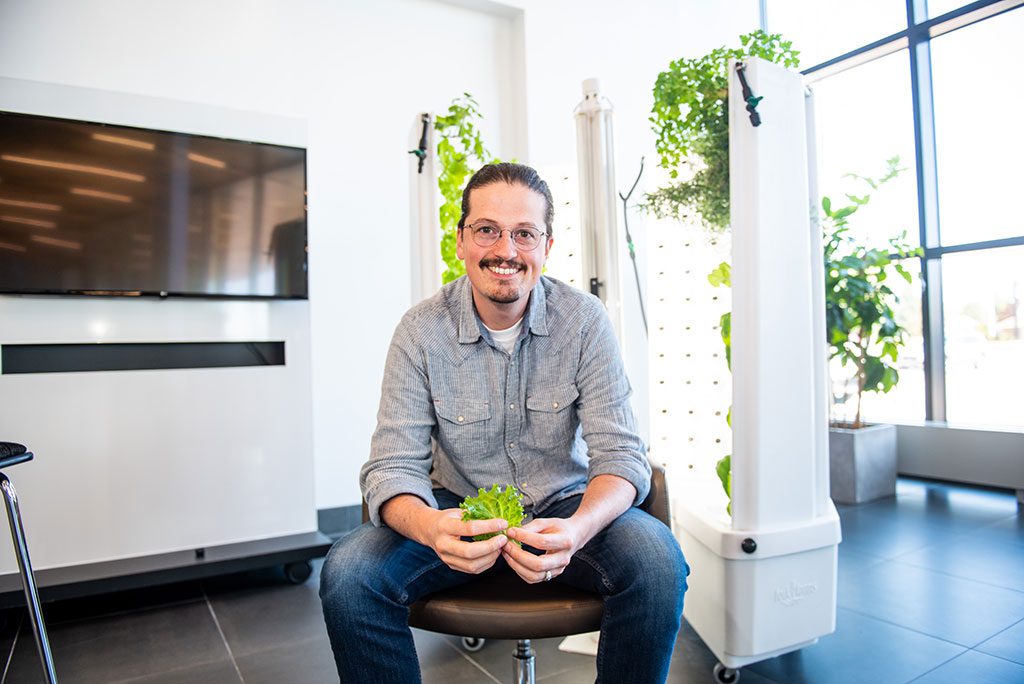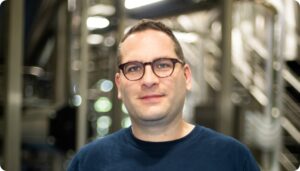
Alex Tyink, of Fork Farms, sits in front of their Flex Farm. A fully self-contained vertical hydroponic system that grows 20 pounds of produce every 28 days.
Why communities should embrace vertical farming
For a vast majority of the country, fresh food travels over 1,500 miles from seed to plate – which results in a more than 50 percent decrease in nutritional content. Another consequence we have all experienced is buying produce that is already rotting on the grocery store shelf. Which is the result of long supply chains that can become even longer when interrupted by pandemics, droughts, truck driver shortages, and other unforeseeable disruptions. The system’s fragility is evident and we are seeing its economic impact.
If we want to protect ourselves from that systemic fragility, what we grow and where we grow it must change. A decentralized distribution model eliminates long supply chains, allowing the production to be as close to the end consumer as possible. We can accomplish this through vertical farming – a revolutionary system to grow produce, herbs, and many other plants in controlled environments.
At Fork Farms, we believe anyone can grow their own food. Our Flex Farms are fully self-contained vertical hydroponic systems that grow 20 pounds of produce every 28 days. They are portable, and only require a standard electrical outlet and less than 10-square-feet of space. Whether someone wants to grow food at home, at the office, or at school, they will have access to fresh food all year.
To take a step toward wider adoption of vertical farming, we must encourage our own communities to embrace the technology. Our mission at Fork Farms is to inspire and educate people, whether they are 5 or 100-years-old, that growing your own food is not complicated – and it is important.
We partner with schools to integrate vertical farms into classrooms and cafeterias, where the students are involved in setting up the Flex Farms and growing the produce. It is great to see how much they love being a part of the process and the pride they have knowing the produce is used to create the food they will eat.
This level of participation is also happening in healthcare facilities, nonprofits, and small communities. We are seeing communities and local experts collaborating to address food insecurity that is all too common in lower-income urban areas. This is by far, one of the most crucial problems vertical farming can directly impact.
I started Fork Farms to positively influence our global food system by providing a way for people to be more involved in growing the food they consume. I’m fortunate to be in a state that aligns with my mission: agriculture, agricultural innovation, and manufacturing – all central to the DNA of Wisconsin. I am surrounded by people and businesses who understand why innovation is necessary and are committed to making it happen.

